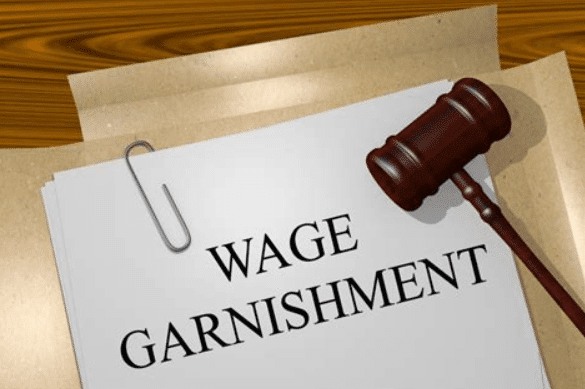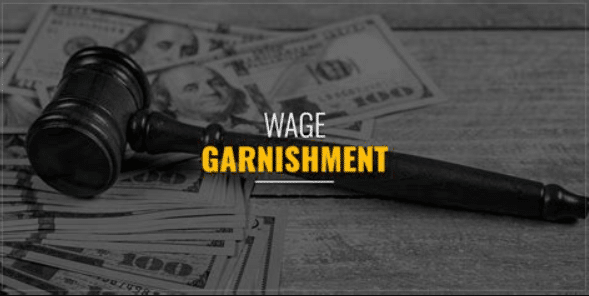Concerned about the safety of your Social Security benefits in the face of creditor actions? This comprehensive guide offers insights into the protection of Social Security income from wage garnishment. Many individuals rely on Social Security or Social Security Disability Insurance (SSDI) as their primary source of income. However, if you owe money to a creditor and are receiving these benefits, you may wonder if creditors can garnish them. The answer is nuanced, and understanding the intricacies of how Social Security income is safeguarded is crucial.
Debt is a common aspect of adult life, with many individuals managing various forms of debt such as auto loans or credit card balances. Typically, creditors do not take drastic actions if individuals are consistently making their payments. However, if payments are missed or ignored, creditors may escalate their efforts to recover the debt.
This escalation often includes frequent calls and letters urging debtors to fulfill their payment obligations. While it may be tempting to ignore these communications, doing so does not make the debt disappear. In fact, it could lead to further legal actions by creditors, including lawsuits and debt collection efforts by third-party agencies.
In the event of a debt lawsuit, if the creditor prevails, they obtain a judgment that grants them legal authority to pursue various methods of debt collection. One such method is wage garnishment, where a portion of the debtor’s wages is withheld to satisfy the debt. For individuals whose primary source of income is Social Security benefits, the prospect of wage garnishment can be particularly concerning. However, there are legal protections in place to safeguard Social Security benefits in certain situations.
Understanding these protections and the legal processes involved in debt collection is essential for individuals navigating financial challenges and seeking to preserve their income stability. By being informed and proactive, individuals can take steps to mitigate the risks associated with debt collection actions and protect their financial well-being.
Sued for debt? Avoid wage garnishment through debt settlement.
No one can garnish your Social Security for consumer debts
Federal law prohibits creditors or debt collectors from garnishing your Social Security benefits for consumer debts, like credit cards, auto loans, and mortgages. If your only source of income is Social Security, you don’t need to worry about losing part of your benefits to this type of creditor.
However, it’s a different story if you owe unpaid child support, alimony, or taxes.
Under 42 U.S.C. 659, the court can order garnishment of your Social Security benefits until you pay overdue child support or alimony. Per 15 U.S.C. 1673, the federal wage garnishment limits for unpaid child support and alimony are:
- 50% if the beneficiary has another spouse or child they’re supporting other than the ex-spouse or child owed money.
- 60% for a beneficiary who doesn’t have another spouse or child.
- An additional 5% of pay for debtors over 12 weeks behind in child support.
According to Public Law 105-30, known as the Taxpayer Relief Act of 1997, the IRS may withhold up to 15% of your Social Security benefits for back taxes.
When individuals rely primarily on Social Security benefits for income, creditors may attempt alternative methods such as freezing bank accounts. However, regulations enforced by the Consumer Financial Protection Bureau (CFPB) offer protection by safeguarding up to two months’ worth of Social Security benefits from garnishment, provided the benefits are deposited directly into the account.
Banks are mandated to maintain the equivalent of two months’ worth of benefits in the account for the recipient’s use. If the account balance exceeds this limit or if the benefits are not received via direct deposit, creditors may be able to access funds from the account.
Let’s consider an example of how wage garnishment works with social security income.
Example: Consider the case of Jill, a 70-year-old retiree solely dependent on Social Security benefits. Despite facing a lawsuit from Huntington Bank for unpaid credit card debt, Jill’s Social Security benefits remain untouchable due to the two-month protection rule. With her benefits deposited directly into her bank account, Jill ensures her account balance does not exceed the protected limit, preventing garnishment attempts by Huntington Bank. While Jill successfully avoids immediate garnishment, she remains vulnerable to future collection efforts should her financial circumstances change.
Is a creditor suing you for unpaid debt, but your sole income is Social Security? Settle the obligation with ZumaZip Settle’s assistance.
Prevent wage garnishment through debt settlement
Repaying debt is the most favorable resolution, alleviating concerns about lawsuits and legal repercussions. Once a debt is settled with the creditor, the case is closed, and the debt is reported as paid to credit bureaus. This eliminates the threat of wage garnishment and other legal actions related to the debt.
Yet, immediate repayment may not always be feasible, prompting consideration of debt settlement. In this process, debtors propose a reduced payment to the creditor in exchange for releasing them from the remaining debt and dismissing the claim.
Debt settlement offers mutual benefits. Debtors save money and evade potential judgments and wage garnishments, while creditors recover a substantial portion of the debt without further legal proceedings.
Curious about debt settlement? ZumaZip Settle, powered by ZumaZip, streamlines the debt settlement process. Our software facilitates communication and negotiation with creditors until a settlement is reached. We then assist in documenting the agreement and securely transferring settlement payments, shielding your financial details from debt collectors.
Protect your Social Security by communicating with your creditors
While consumer creditors cannot garnish your Social Security benefits, they may explore alternative avenues for debt collection. Many retirees supplement their income with funds from sources like 401(k)s or pensions, which are not federally protected from wage garnishment.
Similarly, individuals receiving Social Security Disability Insurance (SSDI) may have other income streams vulnerable to garnishment.
If you find yourself facing creditor actions, it’s crucial to confront the issue directly. Even though Social Security benefits are off-limits for consumer debt garnishment, creditors may target other accessible funds.
A creditor’s lawsuit typically begins with a Court Summons and Complaint, detailing the reasons for the lawsuit and the outstanding debt. Responding with a formal Answer is crucial, as it outlines your defenses and prevents the creditor from obtaining a default judgment.
Before your court date, consider options to address the debt. Repaying the debt in full is the optimal solution, halting further legal proceedings. If full repayment isn’t feasible, negotiating a settlement is an alternative. A settlement involves offering a reduced lump-sum payment, and if accepted by the creditor, it concludes the lawsuit and absolves you of the remaining debt obligation.
No one can garnish your Social Security benefits for consumer debt
Although consumer creditors can’t garnish your Social Security benefits for consumer debt, they may pursue other income sources. If you have assets exceeding two months’ worth of Social Security benefits, safeguarding them is essential. Settling the debt before creditors tap into your savings or voluntary retirement plan is advisable to protect your financial security.
Are you worried about losing part of your retirement income to a creditor? ZumaZip Settle can help you settle the debt today.
What is ZumaZip?
ZumaZip is a convenient solution designed to streamline your response to a debt collection lawsuit. Here’s a breakdown of what you can expect when you use ZumaZip:
Firstly, you’ll access our user-friendly web application, which guides you through the process step by step. You’ll be prompted to answer a series of questions related to your specific situation. Once you’ve completed the questionnaire, you have the option to either print out the finalized forms and mail them to the appropriate courts yourself, or you can opt to utilize ZumaZip’s services to file them on your behalf. Additionally, if you choose this option, an attorney will review your document for added peace of mind.
If you’re seeking guidance on how to effectively respond to a debt collection lawsuit, ZumaZip can provide the assistance you need. Feel free to explore our FAQs for more information on what ZumaZip has to offer.
What if I haven’t been sued yet?
If you’ve only received a collections notice, but not a lawsuit, the best way to respond is with a Debt Validation Letter. When a debt collector contacts you in any way, whether it’s by phone or mail, you can respond by formally requesting a debt validation with a Debt Validation Letter . This letter notifies the collector that you dispute the debt and forces them to provide proof you owe the debt. They can’t call you or continue collecting until they provide validation of the debt. This flowchart shows how you can use a Debt Validation Letter to win.
Get started with a Debt Validation Letter here.
How to Answer a Summons for debt collection in all 50 states
Here’s a list of guides on how to respond to a debt collection lawsuit in each state:
- Alabama
- Alaska
- Arizona
- Arkansas
- California
- Colorado
- Connecticut
- Delaware
- Florida
- Georgia
- Hawaii
- Idaho
- Illinois
- Indiana
- Iowa
- Kansas
- Kentucky
- Louisiana
- Maine
- Maryland
- Massachusetts
- Michigan
- Minnesota
- Mississippi
- Missouri
- Montana
- Nebraska
- Nevada
- New Hampshire
- New Jersey
- New Mexico
- New York
- North Carolina
- North Dakota
- Ohio
- Oklahoma
- Oregon
- Pennsylvania
- Rhode Island
- South Carolina
- South Dakota
- Tennessee
- Texas
- Utah
- Vermont; Vermont (Small Claims court)
- Virginia
- Washington
- West Virginia
- Wisconsin
- Wyoming
Guides on how to beat every debt collector
Hey there! Facing off against a debt collector can feel like a daunting challenge, but fear not! We’re here to help you navigate through it all with our handy guides designed to assist you in beating every debt collector you encounter. Whether you’re facing a new lawsuit or dealing with a persistent collector, we’ve got your back. Stay positive, stay informed, and let’s tackle this together!
- Absolute Resolutions Investments LLC
- Accredited Collection Services
- Alliance One
- Amcol Clmbia
- American Recovery Service
- Asset Acceptance LLC
- Asset Recovery Solutions
- Associated Credit Services
- Autovest LLC
- Cach LLC
- Cavalry SPV I LLC
- Cerastes LLC
- Colinfobur
- Covington Credit
- Crown Asset Management
- CTC Debt Collector
- Cypress Financial Recoveries
- Delanor Kemper & Associates
- Eagle Loan of Ohio
- Educap
- Estate Information Services
- FIA Card Services
- Forster & Garbus
- Freshview Solutions
- Fulton Friedman & Gullace LLP
- Harvest Credit Management
- Howard Lee Schiff
- Hudson & Keyse LLC
- Integras Capital Recovery LLC
- Javitch Block
- Jefferson Capital Systems LLC
- LVNV Funding
- Mannbracken
- Mariner Finance
- Medicredit
- Michael J Adams PC
- Michael J Scott
- Midland Funding LLC
- Mullooly, Jeffrey, Rooney & Flynn
- Mountain Land Collections
- MRS Associates
- National Collegiate Trust
- Nationstar Foreclosure
- Northstar Capital Acquisition
- NCEP LLC
- NRC Collection Agency
- OneMain Financial
- Palisades Collection LLC
- Pallida LLC
- Paragon Revenue Group
- Pinnacle Collections Agency
- PMAB LLC
- Portfolio Recovery Associates
- Provest Law
- PYOD LLC
- Reunion Student Loan Finance Corporation
- Revenue Group
- Regents and Associates
- RSIEH
- Salander Enterprises LLC
- Second Round Sub LLC
- Security Credit Services
- Sherman Financial Group
- Suttell and Hammer
- T-Mobile
- Transworld Systems
- Tulsa Teachers Credit Union
- UCB Collection
- Velo Law Office
- Velocity Investments
- Waypoint Resource Group
- Weinberg and Associates
- Wolpoff & Abramson
Settle your medical debt
Having a health challenge is stressful, but dealing medical debt on top of it is overwhelming. Here are some resources on how to manage medical debt.
- Am I Responsible for My Spouse’s Medical Debt?
- Do I Need a Lawyer for Medical Bills?
- Do I Need a Lawyer to Fight Medical Bill Debt?
- Does Bankruptcy Clear Medical Debt?
- How Much Do Collection Agencies Pay for Medical Debt?
- How to Find Medical Debt Forgiveness Programs
- Is There a Statute of Limitations on Medical Bills?
- Medical Debt Statute of Limitations by State
- Summoned to Court for Medical Bills — What Do I Do?
- Summoned to Court for Medical Bills? What to Do Next
Stop calls from Debt Collectors
Do you keep getting calls from an unknown number, only to realize that it’s a debt collector on the other line? If you’ve been called by any of the following numbers, chances are you have collectors coming after you, and we’ll tell you how to stop them.
- 800-390-7584
- 800-289-8004
- 800-955-6600
- 877-366-0169
- 877-591-0747
- 800-278-2420
- 800-604-0064
- 800-846-6406
- 877-317-0948
- 888-899-4332
- 888-912-7925
- 202-367-9070
- 502-267-7522
Other wage garnishment resources
- Bank Account Garnishment and Liens in Texas
- Can I Stop Wage Garnishment?
- Can My Wife’s Bank Account Be Garnished for My Debt?
- Can Payday Loans Garnish Your Wages?
- Can pensions be garnished?
- Can Private Disability Payments Be Garnished?
- Can Social Security Disability Be Garnished?
- Can They Garnish Your Wages for Credit Card Debt?
- Can You Stop a Garnishment Once It Starts?
- Guide to Garnishment Limits by State
- How Can I Stop Wage Garnishments Immediately?
- How Long Before a Creditor Can Garnish Wages?
- How Long Does It Take to Get Garnished Wages Back?
- How to Fight a Wage Garnishment
- How to Prevent Wage Garnishment
- How to Stop a Garnishment
- How to Stop Social Security Wage Garnishment
- How to Stop Wage Garnishment — Everything You Need to Know
- New York Garnishment Laws – Overview
- Ohio Garnishment Laws — What They Say
- Wage Garnishment Lawyer
- What Is Wage Garnishment?



































